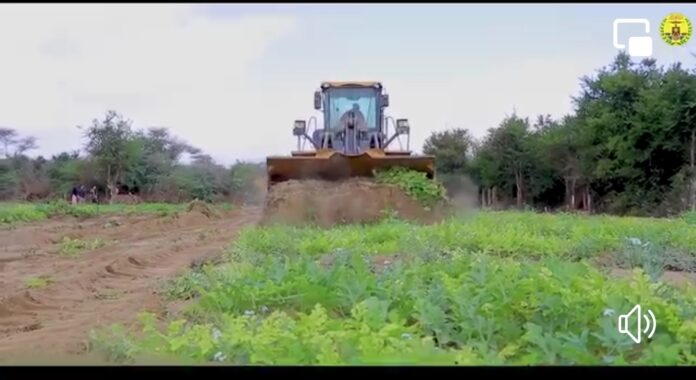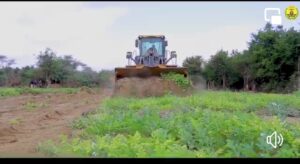In current years, the Biji Valley has been the middle of controversy due to the ongoing cyclic operations concentrated on illicit farming in the area. The destruction of illicit or unauthorized farming has been a contentious issue, with arguments each for and against such actions. On one hand, authorities argue that these operations are essential to guard the surroundings and pastoralist interests. Illicit farming can have bad penalties on the land, which includes soil degradation, deforestation, and loss of biodiversity. By destroying these unlawful farms, authorities can help maintain the herbal landscape and ensure the sustainability of pastoralist activities in the area. Additionally, illicit farming regularly entails the use of chemical compounds and pesticides, which can similarly damage the surroundings and pose risks to human and animal health.
However, these engaged in illicit farming argue that the undertaking plays a tremendous role in their livelihoods, particularly in Biji areas. For many, farming is their fundamental supply of profits and sustenance, and the destruction of their farms can have devastating consequences.
Despite these arguments, the government has made it clear that by targeting illicit farming, they are no longer solely upholding the regulation but additionally defending the livelihoods of those who rely entirely on pastoral existence for their survival. The authorities understand the significance of pastoralism in the area and aim to retain the natural environment for future generations. Additionally, they argue that illicit farming regularly leads to land degradation and conflicts between communities, making it indispensable to take motion to address these issues.
However, the repeated nature of these operations raises questions about their effectiveness and the reasons in the back of this repetitive brush aside for regulation and order. The equal area, being centered for the fourth time, suggests that the authorities are no longer addressing the root motives of illicit farming and are alternatively enticing in a cycle of destruction and reconstruction. It is quintessential to reflect onconsideration on whether these operations are truly aimed at protecting the surroundings and pastoralist hobbies or if there are different ulterior motives at play. It is suestionable how in these operations even one man or woman was not arrested for the
repetitive offence to law and order.
One of the foremost issues raised by using critics of the cyclic operations is the have an effect on on the local communities and their way of life. The repeated engagement of illicit farming can lead to the displacement of pastoralists and in addition exacerbate poverty and insecurity in the region. It is integral to consider the bad influence of these provocative farmings and to ensure that the rights and well-being of the pastoral populations are respected.
Furthermore, there are allegations that the cyclic ilicit farming are being used as a pretext for land grabbing or political gains. If these claims are true, it undermines the credibility and trust of the authorities involved. It is fundamental for authorities to make certain transparency and accountability in their actions to keep away from any understanding of lacking honesty or authority.
In conclusion, whilst the destruction of illicit farming may also be considered as good sized and vital for the safety of the surroundings and pastoralist interests, the repeated nature of these operations and the questionable motives behind them raise issues about the honesty and legitimacy of the authorities involved. It is quintessential to reflect onconsideration on the affect of these farming moves on the neighborhood communities and their way of life, as properly as the practicable penalties of land grabbing and displacement. Authorities should make sure transparency and accountability in their operations to keep away from undermining the believe and well-being of the pastoralist populations. A holistic strategy is wanted to tackle the root motives of illicit farming and to help sustainable livelihoods for all men and women in the Biji Valley.





